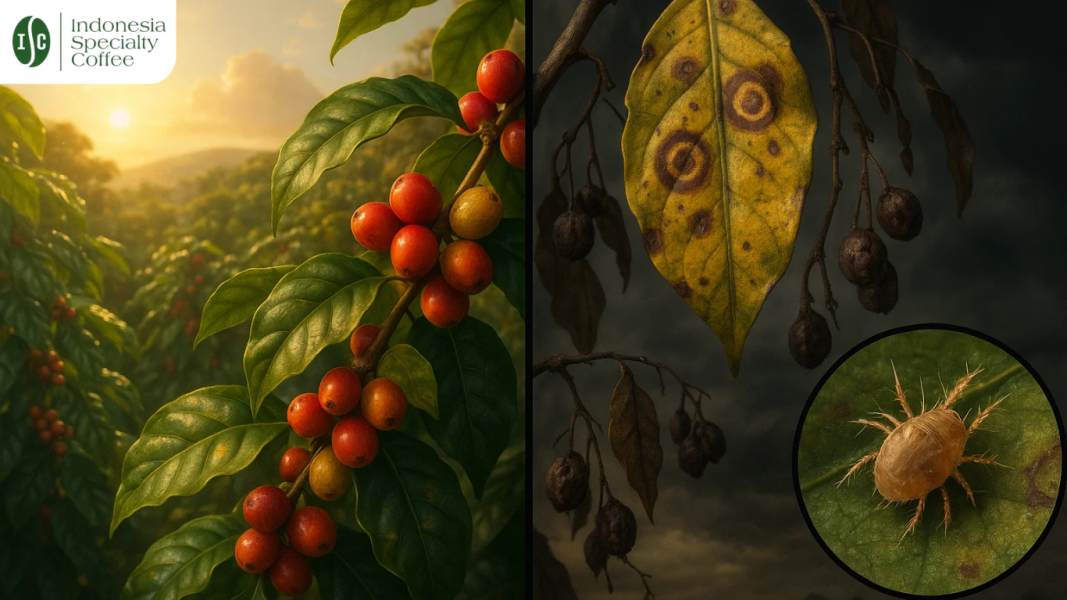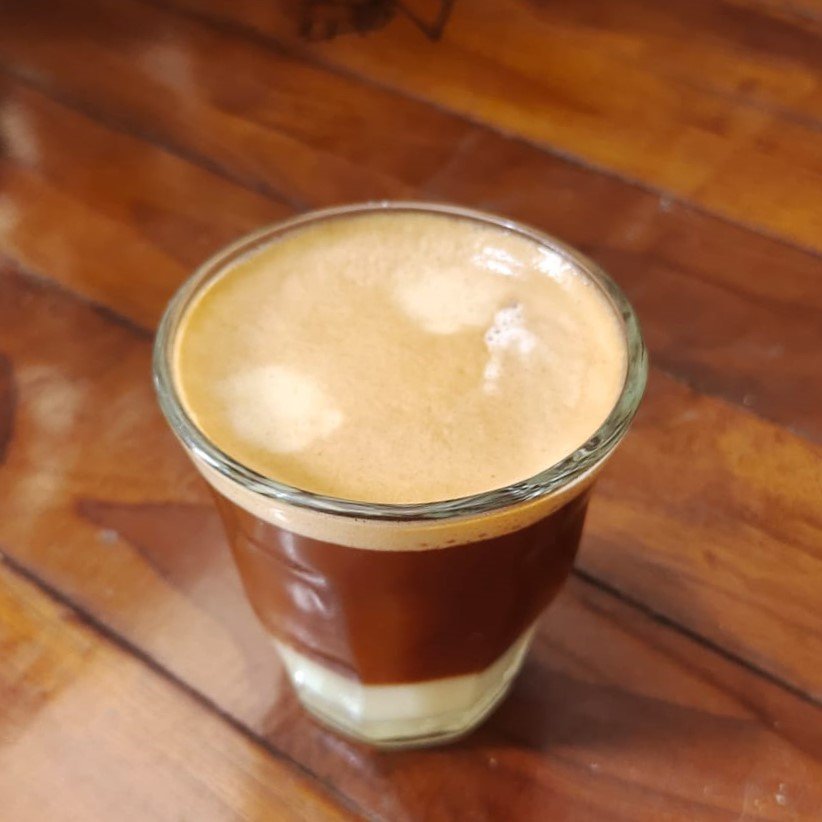Imagine waking up, brewing your favorite cup of specialty coffee, and savoring its aroma—only to realize that what you’re drinking today might not taste the same tomorrow. Not because of a new roast or brew method, but because of a virus threatening coffee crops from the inside out. This isn’t science fiction—it’s the real impact of the Coffee Ringspot Virus in specialty coffee, a rising concern among farmers, roasters, and coffee lovers alike.
En Indonesia’s specialty coffee gains global recognition, biological threats like Coffee Ringspot Virus (CoRSV) are quietly reshaping the flavor and future of the beans we love. Let’s uncover what’s really happening behind the leaves and beans—and what it means for your daily brew.
What Is Coffee Ringspot Virus in Specialty Coffee?
A Virus That Disrupts Coffee’s Natural Rhythm
En Coffee Ringspot Virus is caused by a plant-infecting virus spread by microscopic mites known as Brevipalpus phoenicis. It leaves behind ring-like lesions on the coffee plant’s leaves and cherries. This leads to early leaf drop, reduced cherry quality, and an overall decline in coffee taste and aroma—especially in prized beans used for specialty coffee.
In regions like Minas Gerais, Brazil—responsible for half of the country’s coffee output—the virus has become increasingly common.
How Coffee Ringspot Virus Impacts Quality and Flavor
From Farm to Cup: A Chain Reaction of Loss
Even if you’re brewing with the best French press ratio o pour-over timing, the Coffee Ringspot Virus can sabotage the final flavor.
Here’s what happens:
- Leaves fall prematurely, reducing the plant’s ability to photosynthesize.
- Sunburnt cherries due to lost leaf cover affect sweetness and complexity.
- Secondary infections from fungi or bacteria lower bean integrity.
- Cup quality degrades, which lowers cupping scores and specialty value.
This directly impacts smallholders and premium producers who rely on high-quality beans to enter the specialty coffee market.
Why the Coffee Ringspot Virus in Specialty Coffee Is Getting Worse
Climate Change Is the Catalyst
The spread of Coffee Ringspot Virus in specialty coffee regions is no coincidence. Warmer temperatures are making it easier for the virus to infect previously resistant plants. Experiments show that plants exposed to just a few extra degrees become highly susceptible to CoRSV.
This spells trouble for regions like Sumatra and Java, where climate-sensitive varieties like Aceh Gayo y Lampung thrive.
Can Coffee Ringspot Virus Reach Indonesia?
A Threat to Asia’s Specialty Coffee Heartlands
Although CoRSV is mainly reported in Brazil and Costa Rica, the mites that spread it live in similar climates to Indonesia. If CoRSV establishes itself in the region, prized beans from Sumatra y Toraja could suffer devastating losses.
Indonesia’s specialty coffee industry—renowned for volcanic terroirs and diverse processing methods—could lose both prestige and market access.
What Can Farmers and Roasters Do About CoRSV?
Smart Practices Against a Silent Invader
Solutions to combat the Coffee Ringspot Virus in specialty coffee include:
- Weed sanitation to remove virus reservoirs
- Control of Brevipalpus mites, the primary vector
- Using virus-resistant cultivars, if available
- Improved climate resilience, including shade trees and soil health
Roasters and café owners can also ask about sourcing transparency and support farms that invest in sustainable production.
Why the Fight Against Coffee Ringspot Virus in Specialty Coffee Matters
It’s About More Than Just Beans
If you love tasting the chocolatey richness of Café de Sumatra or enjoy experimenting with fermented coffee beans, protecting the quality of green beans is non-negotiable.
Specialty coffee is already battling environmental pressures, market volatility, and shifting consumer preferences. The rise of Coffee Ringspot Virus adds one more reason to advocate for better sourcing practices and strong relationships between farmers and roasters.
What Can You Do as a Coffee Lover?
- Ask about virus management practices from your roaster or shop.
- Choose beans from certified, transparent sources.
- Share awareness of this issue with fellow enthusiasts and professionals.
Actionable Takeaway
If you care about the future of specialty coffee, stay informed about biological threats like Coffee Ringspot Virus. Your choices as a buyer, barista, or brewer can make a difference—from crop to cup.








